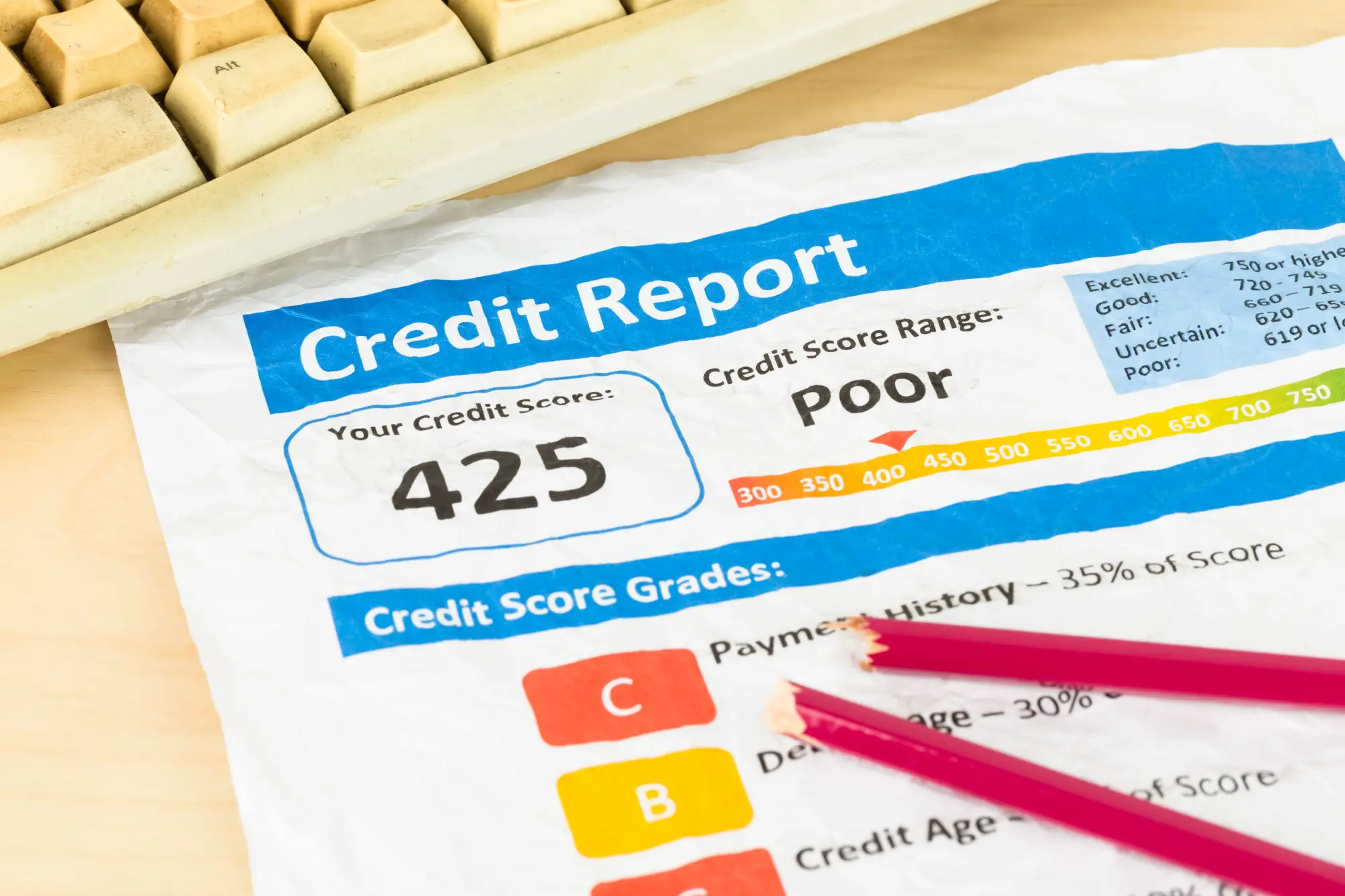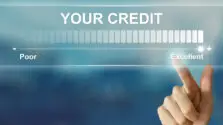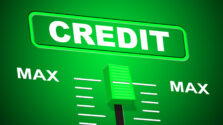Credit is scary for many, and for good reason. The average American is over $52,000 in debt, and that's not a situation anybody wants to find themselves in.
Luckily, boosting your credit can save you money on interest, help you stay out of debt, and keep you in good financial health. The best part is, it isn't even that hard to do! Let's talk about why building credit is so important in 2021.
What Does "Building Credit" Actually Mean?
If you're looking to build credit, you need to know exactly what you're doing. To know what you're actually talking about, you need to know about the 3 main companies involved with creating credit scores.
Credit Score
FICO, Equifax, and Transunion. Those are the 3 main credit report companies you need to worry about. Their scores only vary slightly. Equifax and Transunion are almost identical in their numbers and criteria, and FICO might make you feel good because they run their numbers a little higher.
No matter which one you look at, they all provide the same general service. They will each rank your creditworthiness on a scale of 300 to 850.
What Is A Good Credit Score?
If you fall between 300 to 580, that's considered bad credit. This will make it difficult to find unsecured lines of credit and will make your interest rates very high on loans.
Between 580 and 640 is considered to be fair. With a score like this, you should be expecting long-term loans like mortgage and auto loan interest to be pretty high, even in the double digits.
If you make it above 640, your score is considered to be good. You shouldn't have much trouble finding a credit card, but you may have to shop around a bit to find the right one.
If your number starts with a 7, you're pretty clear to find new lines of credit. Above 750 is considered great or excellent, and above 800 is simply elite. Most Americans fall between 600 and 750, with an average score being 710.
Why Building Credit Is So Important
The importance of building credit in 2021 cannot be understated. If you want to go back to school, buy a house, start a business, get a new apartment, buy a car, or take out a personal loan at any point, you need credit.
There are so many reasons you could find yourself needing a loan in the future, and not all of them are predictable. Medical debt or a car accident can come out of nowhere. If you need to buy a new car tomorrow, do you have the money to pay it all upfront?
If you said yes, you're one of the lucky few. However, the majority of Americans only have between $1,000 and $5,000 in their savings, meaning they would need to take out a loan at some point.
Even if an emergency never comes where you need a loan, do you plan to rent the same apartment or live in the same house for the rest of your life? Your credit score will play a major role in your ability to do that.
All in all, the importance of building credit is simply avoiding roadblocks from hindering what you want to do with your life. If you don't want anything standing in the way of your financial future, you need credit. Therefore, it should be taken seriously.
Factors Of Your Credit Score
The most critical part of learning how to building credit is to know exactly what the big 3 companies look for. These are the factors they take into account with your credit rating.
Payment History
This is the big one. Whether it's a personal loan, credit card, mortgage, student loan, or anything else, your payment history is the number one factor. If you have monthly payments, do everything you can to make each payment as soon as possible.
If you go over 30 days past the due date, it will seriously impact your credit score. 60 days is considered serious, and 90 is considered negligent. One missed payment can tank your score, especially if your credit is still young.
The other thing to worry about is how long a missed payment stays on your credit report. Always worry about that. A missed payment will stay on your report for seven years, so if you're planning on taking out a loan in the next 7 years, don't miss a payment!
Credit Card Utilization
This is specific to credit cards and not other loans. You are given a maximum amount on your credit card, and you should keep your utilization as low as possible at the end of each month. If you want points from your credit card and you know a big purchase is coming up, then, by all means, use it.
However, you should pay off as much of it as possible in that first month to avoid any harm to your credit score. Keeping your utilization under 10% is considered really good, and under 1% is considered excellent. Do your best to keep it under 20% at all times.
If your credit limit is $10,000 and you only have $90 on your statement at the end of the month, that is considered excellent. If you stay under $1,000, there shouldn't be an impact on your credit score.
If you go over 40% in one month, it will hurt your score. If you keep it down after that month, you should have a speedy recovery. However, if it lingers, it won't help.
Length Of Credit
Time isn't only relevant to when you made your payments. The age of your credit history has a medium impact on your overall score. It isn't too much to worry about, as it will simply improve with time.
The only other thing you can do, besides wait, is to not close your accounts too early. If you have a credit card and you decide you want a new one, leave the old one open and make small, occasional purchases on it. The age of credit is based on an average for all credit lines.
A good way to do this is to use your old card for small subscriptions and then pay them off monthly. Add your Netflix and Spotify onto this card and just pay it off in full at the end of each month or only use it on the cash back deals that it offers!
Other Factors
There are other factors that play a smaller role in your credit score and are less talked about because of it. However, they do still have an impact and should be considered.
For example, hard inquiries affect your credit score negatively. This is the type of inquiry that a lender would take out to get a detailed quote of your credit history. Fortunately, you don't have to worry too much about these, as they only have a limited impact and stay on for 2 years.
Most lenders won't mind seeing a few hard inquiries on your credit report, as this means you are taking out multiple lines of credit, which actually improves your score. That's right, your total number of accounts actually has a slight impact on your score! Taking out multiple lines of credit and handling them all well suggests to lenders that you're responsible. However, don't place too much stock into this. Its impact is low and if you're not careful, could cost you a lot.
This also means checking your own credit score. It's best to just find out your credit score when you need it, like when you're taking out a loan. Don't check it regularly, and instead use a free estimator like Credit Karma. It won't be 100% accurate, but it will take all of your loans and lines of credit into account and give you a close estimate.
Types Of Credit That Affect Your Score
Basically, if you owe someone money who has your social security number, it will affect your score if you don't pay it. Even if you've never seen it mentioned on your credit report.
We know about mortgages, student loans, car loans, and credit cards. However, there are other types of debts to be concerned with.
Have you taken out a payday loan? These are short, so they won't appear on your credit score unless you miss a payment. It's best to avoid these at all costs if you can.
Do you have medical debt? This is another that won't show up unless something has gone wrong, so be sure to pay it off or settle it as soon as possible.
How To Build Credit
Whether you're 18 and looking to get started or if you're 5 years into crippling debt and looking to increase your score fast, building credit is just as important. If you want a mortgage, more freedom on an apartment search, or lower interest on your loans, then boosting your credit is the way to go.
From No Credit
If you've never taken out a loan or opened a credit card, then it may be time to start building your credit. If you want to start off strong, open up a new credit card, use it to fill your gas tank, then pay it off completely with your bank account. Making one small purchase and paying it off in full will already put you a lot further than anybody with zero credit history.
From there, keep building it. It's a lot easier to start from scratch than to repair damaged credit history. Once you have the ball rolling, be responsible and don't spend more than you can pay off at the end of each month. Again, doing things like adding subscriptions or only using it for its rewards can save your score and your debt!
Nervous about credit cards? Well, there are a couple of different types. If you want low interest rates and less risk, go with a secured credit card. These have collateral and ensure the lender that they'll get their money.
If you trust yourself to make payments regularly and you want to earn points, go with an unsecured line of credit. It will have higher interest rates, but you won't have to pay them if you pay off the card each month.
From Low Credit
If you've had lines of credit and missed a few payments, or if you're swallowed in high-interest debt, you're not alone. There are ways of climbing out of it. Sometimes it's as easy as disputing certain claims from lenders on your score, and sometimes it's taking steps toward eliminating debt.
If you need things disputed, your debt consolidated, or your credit to increase, the fastest way to do that is with the right credit repair company's services.
Budget
Having a budget is important for overall financial health, but it's really important when you involve credit. Make sure you have a budget in mind and stick to it for your credit cards and overall monthly spending so you don't go into debt.
Try to increase your income if you do find yourself in the red after reducing your expenses. Ask for a raise, get a side hustle, or get a part-time job. This will help you pay off your debts and keep your score high if your income is low.
Get Building!
Building credit isn't rocket science. Make payments on time, downsize if you need to, and be responsible. It will have an enormous impact on the directions you're able to take later on in your life, so take your score seriously. Keep up to date with our latest credit news and check out some of our tips & tricks to rebuild credit on your own.



